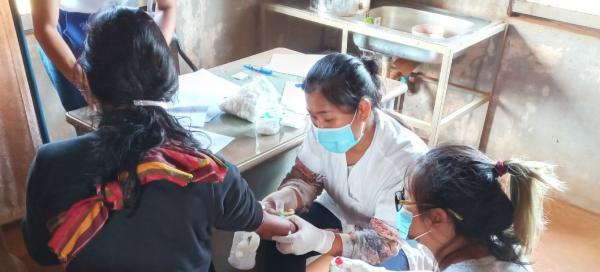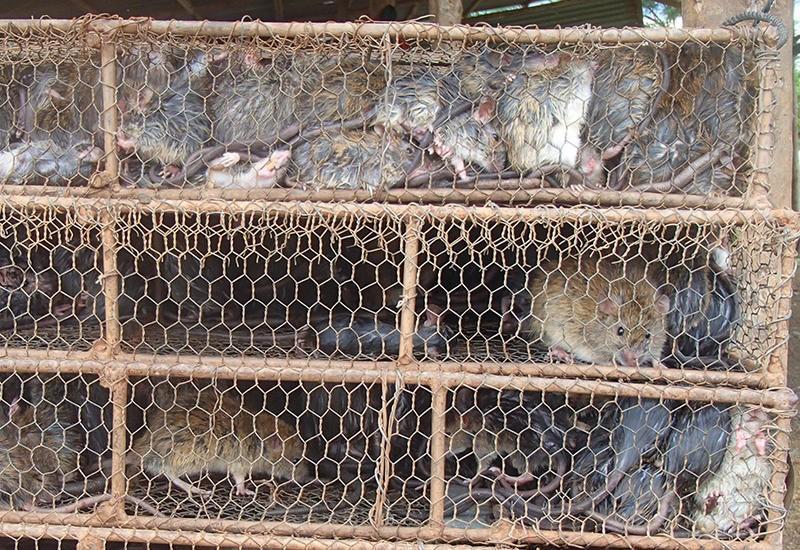Issues
More than 70% of emerging zoonotic infectious disease events are of wildlife origin. Betacoronaviruses (beta-CoVs), of which some wild animals such as bats are natural reservoirs, cause severe or even fatal respiratory infections in humans. Knowledge and data about animal reservoirs, as well as about the cultural, sociological and ecological factors explaining the transmission of beta-CoVs to humans, are limited.
Wildmeat consumption is common in Cambodia, where live animal markets are a major source of supply. This practice therefore poses a health problem: that of the potential transmission of pathogens from animals to humans, which can jeopardize already weak public health systems.
Description
The project is structured around four interconnected work packages:
- identifying and analysing the main wildlife trade chains in two pilot areas in Cambodia;
- analysing practices and perceptions concerning wildmeat consumption;
- documenting and quantifying the presence and diversity of betacoronaviruses in wildmeat, and identifying the vectors of animal infection and human exposure;
- developing a methodological framework for the early detection of viral transmission from wildlife to humans, using the results of the three work packages.
Such a system could subsequently be rolled out to other countries and continents, including Africa, which is also a hotspot for the emergence of zoonotic diseases.
Expected impacts
- Knowledge about the pathogens circulating in wildlife and the species, practices and people at risk, and diagnosis capacities in partner laboratories will all have been improved.
- Monitoring of transmission from wildlife to humans and information about high-risk populations will have been consolidated.
- The intensity of high-risk practices, vectors of betacoronavirus infection, will have been reduced.
- The emergence of new strains in the long term will be monitored and biodiversity will be better protected.
The ZooCov project, which was rolled out in Cambodia over a year and a half, has published its main results, which will form the foundations of integrated emerging disease surveillance operations. The project was launched at the start of the Covid-19 pandemic with funding from the ANR, and is a concrete example of the merits of the One Health approach, which is vital for preventing the emergence of new diseases and potential future pandemics. The key factors in its success have been the multidisciplinary international collaboration between its 17 partners and the support received from the Cambodian Ministries of Agriculture, Environment and Health.
Contract partners
Institut Pasteur du Cambodge; Wildlife Conservation Society; Institut de Recherche pour le Développement (IRD); University of Hong Kong; Fauna and Flora International


























